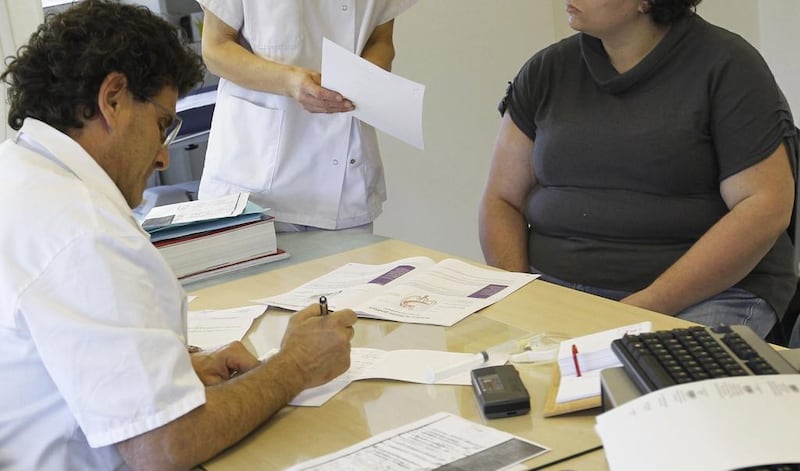The rates of bariatric (weight-loss) surgery in the Arabian Gulf are among the highest in the world. It was once reserved for the morbidly obese, but these days moderately obese individuals and even chubby children might undergo the procedure. The benefits of surgery can be huge, including remission of type 2 diabetes and better liver function. However, bariatric surgery patients don’t always end up happily ever after.
Beyond the occasional physical complications, there can also be psychological and social consequences. One such consequence appears to be an elevated risk of divorce. A review study published in Social Work Today suggests that the two-year, post-operative divorce rate in bariatric patients is as high as 75 to 85 per cent. This high frequency of marital breakdown has given rise to the phrase "bariatric divorce".
The elevated post-operative divorce rates have been explained in terms of unmet expectations. This is the idea that some patients anticipate that their new body will put the sparkle back into a flagging marriage. When this expectation is not met, it can be the kill shot to an already troubled relationship.
Another possible reason is the idea of one-sided lifestyle changes. In cases where both partners are obese and only one partner undergoes the surgery, there can be huge, one-sided changes to the relationship. One partner may become more energetic and more sociable, attract more attention and take up new hobbies. Old habits, such as feasting on junk food while binge-watching TV, may no longer appeal. This lifestyle divergence can strain a relationship to breaking point. A couple once united by obesity are slowly untied by slimness.
A third interpretation for the high divorce rate – and none of these interpretations are mutually exclusive – is that the gains in self-esteem and confidence empower the post-operative patient to extract themselves from a toxic relationship. The new body is the springboard to a new life.
Divorce is not the only psycho-social consequence of bariatric surgery. Problems arising after surgery can also occasionally include anorexic or bulimic styles of eating. This can lead to greater than expected weight loss and disorder eating behaviours such as binging and purging. There is also growing evidence that some post-operative bariatric patients appear to be at higher risk of alcoholism and other addictive behaviours. A study published in the Journal of the American Medical Association in 2012 also reports an elevated risk of suicide.
These risks are small, but they are there. This is why best-practice guidelines in bariatric surgery strongly recommend that psychological evaluations and psychological support are essential. This helps ensure the best possible outcomes, and helps identify pre-existing problems that might make bariatric surgery a bad idea.
Poor-quality bariatric programmes take a dangerously superficial, tick-box approach to psychological assessment and support. The worst ones don’t do it at all, and certainly won’t include a licensed psychologist in the process. By contrast, high-quality programmes will attempt to fully prepare candidates for this life-changing surgery, with a psychologist identifying the best ways to support the individual pre- and post-surgery.
A study published in Obesity and Surgery this year concluded: "The Arabian Gulf has both the highest percentage of bariatric procedures performed as well as the highest prevalence of obesity. However, they have the lowest number of publications and research when compared to their western counterparts." Another study published in the same journal reported that only 22 per cent of programmes in the Middle East reported involving psychologists as part of routine bariatric practice.
There is an urgent need for regional guidelines. More regional research and greater compliance with existing evidence-based best-practice would also help inform and protect.
Dr Justin Thomas is an associate professor at Zayed University in Abu Dhabi
On Twitter: @DrJustinThomas





